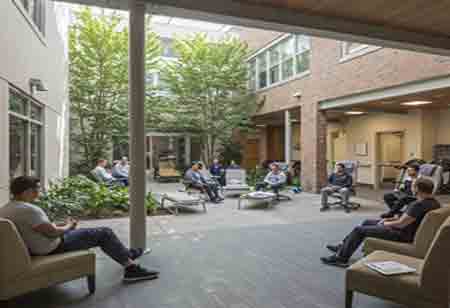From Brainwaves to AI: How Technology is Transforming Addiction Recovery
Technology is an ally in the battle against rising substance abuse, providing innovative solutions to reduce relapse, improve recovery and increase accessibility to treatment.

By
Medical Care Review | Thursday, August 07, 2025
Stay on top of your health and well-being with exclusive feature stories on the top medical clinics and treatment centers, expert insights and the latest news delivered straight to your inbox. Subscribe today.
Fremont, CA: Innovative technologies are evolving, transforming how human life has ever been witnessed and helping to find solutions for those never touched upon. Likewise, the advancements of these technologies in drug addiction are promising more effective and personalised treatments. From advanced brainwave monitoring to AI-powered relapse prediction tools, these cutting-edge approaches are transforming how addiction recovery is understood and managed. At the forefront of these advancements is a unique application of ultrasound technology, offering a ray of hope against addiction.
Scientists from West Virginia University’s Rockefeller Neuroscience Institute are researching ultrasound deployed against addiction to opioids and finding the cravings of people with an addiction. Using the ultrasound waves that target specific brain regions associated with cravings, the participant's responses will be measured from zero to ten.
In one instance, a participant reported her craving for heroin at 6.5. At the same time, her desire for pills peaked at 9, illustrating the varying intensity of cravings and the potential of ultrasound technology to detect and influence these impulses. This helps healthcare professionals assess recovery progress and estimate relapse risks.
This cutting-edge approach aims to reduce dependence and support long-term recovery. These advancements, combined with predictive analytics and AI-driven insights, are revolutionising relapse prevention, empowering individuals to regain control and rebuild their lives.
Another emerging technology in addiction recovery is neurofeedback. This non-invasive method monitors brain activity and provides real-time feedback to individuals. By learning to adjust their brainwaves, people can improve emotional control, reduce cravings and manage stress. Over time, neurofeedback has shown potential in helping individuals stay sober and lower the risk of relapse, making it an essential addition to traditional recovery treatments.
With all the new developments, telehealth and digital therapeutics are reshaping the way addiction recovery is approached. Telehealth allows patients to access therapy sessions and counselling remotely, eliminating the need for in-person visits. This technology benefits those in rural areas with limited access to treatment centres. Digital therapeutics, such as specialised apps and online programs, provide personalised, evidence-based interventions. These tools help users track progress, manage triggers and receive real-time support, offering a flexible recovery process that can be used alongside traditional treatments.
Together, telehealth digital therapeutics and AI-driven technologies make addiction recovery more accessible and convenient, helping individuals stay on track with their recovery goals. With their ability to connect patients to care, these technologies are breaking down barriers and providing critical support to those battling addiction.







